Table of Contents
ToggleDiving into the world of C++ can feel like jumping into a pool filled with jellyfish—exciting but a bit daunting. However, with the right projects, beginners can transform that fear into confidence. C++ is not just a language; it’s a gateway to understanding the fundamentals of programming, and what better way to learn than by creating something fun and functional?
C++ Projects for Beginners
Creating C++ projects helps beginners solidify their understanding of programming concepts. Simple applications can be effective gateways into the world of software development. Here are several project ideas that cater to various interests.
- Calculator Application: A basic calculator provides hands-on experience with fundamental operations. Users can explore addition, subtraction, multiplication, and division while learning about functions and input/output.
- Tic-Tac-Toe Game: Developing a console-based tic-tac-toe game introduces beginners to game logic and user interaction. The project encourages understanding arrays and control flow.
- Personal Diary: A personal diary program allows users to create, read, update, and delete entries. This project enhances knowledge of file handling and data structures.
- To-Do List Manager: Creating a to-do list application aids in practicing user-defined functions and file manipulation. The focus shifts from merely displaying information to maintaining persistent data.
- Guess the Number: Building a number guessing game involves random number generation and user input. This project develops logical thinking and reinforces the concept of loops and conditionals.
- Simple Quiz Application: A quiz application generates questions and evaluates user responses. This project combines arrays, loops, and conditional statements into a cohesive format.
- Temperature Converter: A temperature conversion tool allows users to switch between Celsius and Fahrenheit. Through this project, beginners grasp the importance of functions and data types.
These projects offer various levels of complexity, engaging beginners and fostering a productive learning environment. Each project builds on previous knowledge and introduces new concepts, making them ideal for honing C++ skills.
Benefits of Working on C++ Projects

Engaging in C++ projects offers numerous advantages, enhancing both learning and practical skills.
Skill Development
Working on C++ projects significantly boosts programming skills. Beginners grasp essential programming concepts through hands-on experience. They learn how to structure code, manage memory, and implement algorithms effectively. Completing projects fosters problem-solving abilities as learners encounter real challenges to tackle. Practical application of theoretical knowledge solidifies understanding. Collaborative projects encourage teamwork, enhancing communication skills. Each successful project completed instills a sense of accomplishment, motivating learners to take on more complex tasks. Those exploring C++ expand their skill sets, paving the way for future programming endeavors.
Real-World Applications
C++ projects demonstrate real-world applications of programming. They prepare beginners for practical scenarios they may encounter in technology careers. Developing a basic calculator illustrates arithmetic operations used in various software applications. A console-based game like tic-tac-toe mimics logic used in the gaming industry. Personal diary programs showcase file handling, which is essential in database management. To-do list managers reflect task organization found in productivity software. Each project presents unique challenges that mirror industry demands, making the learning experience relevant. Engaging with these projects equips learners with skills applicable in various fields, enhancing their employability.
Beginner-Friendly C++ Projects
Engaging in C++ projects helps beginners to build their programming skills. Each project focuses on essential concepts, making it easier to grasp fundamental programming principles.
Project 1: Simple Calculator
Creating a simple calculator is a great starting point. The project involves basic operations like addition, subtraction, multiplication, and division. It requires implementing functions to handle user input and output. By completing this project, beginners learn about data types, functions, and basic control structures in C++. Debugging challenges enhance problem-solving skills. This project fosters a deeper understanding of how to work with user-defined functions and arithmetic operations.
Project 2: Tic-Tac-Toe Game
Developing a console-based Tic-Tac-Toe game reinforces the idea of game logic. This project requires programming the game’s rules, allowing two players to take turns. Implementation of a board display adds visual feedback for user actions. Beginners learn about loops, conditional statements, and arrays through this hands-on exercise. Engaging with game mechanics encourages logical thinking and helps participants practice object-oriented programming concepts. Completing this project creates a sense of accomplishment and improves critical coding skills.
Project 3: Basic File I/O
A basic file I/O program offers insight into file handling in C++. This project focuses on reading and writing data to files, ideal for beginners wanting to explore data persistence. Users create a personal diary program where they can save and retrieve entries. Handling file streams teaches essential input-output concepts while nurturing good coding practices. This experience enhances understanding of error handling and data management techniques. By engaging with file operations, beginners gain valuable skills relevant to real-world applications.
Tips for Success in C++ Projects
Success in C++ projects requires understanding key concepts and effectively troubleshooting issues. These skills lay the foundation for building robust applications.
Understanding Core Concepts
Understanding data types is crucial in C++. Familiarity with integers, floats, and characters helps in selecting the right type for variables. Grasping control structures like loops and conditionals facilitates handling repetitive tasks and decision-making efficiently. Functions play a vital role as well. Utilizing them enhances code organization and reusability. Object-oriented programming concepts such as classes and inheritance introduce a powerful way to model complex systems. Emphasizing these core concepts strengthens a beginner’s ability to write clean and efficient code.
Debugging Techniques
Debugging can be a challenging yet rewarding experience. Using integrated development environments (IDEs) provides beginners with tools like breakpoints and step-through debugging to trace code execution. Implementing print statements can assist in observing variable values at various stages, simplifying the identification of logical errors. Checking for syntax and runtime errors is essential too, as small mistakes can lead to significant issues. Reading error messages carefully often provides clues for corrective action. Cultivating a habit of revisiting code helps in recognizing bugs, leading to a more successful project outcome.
Resources for Learning C++
To learn C++, various resources are available to beginners. Online platforms offer structured courses that focus on different aspects of the language. Websites like Codecademy and freeCodeCamp provide hands-on exercises that enhance practical skills.
Books also serve as invaluable resources. Titles like “C++ Primer” by Stanley B. Lippman and “Effective C++” by Scott Meyers outline essential concepts and best practices. These texts contain exercises that encourage active learning and reinforce understanding.
YouTube is another great source for visual learners. Channels such as The Cherno and ProgrammingKnowledge provide tutorials covering both fundamental and advanced topics. Visual demonstrations clarify complex concepts and make learning engaging.
Online forums and communities offer additional support. Websites like Stack Overflow and Reddit have active C++ communities where learners can ask questions and share insights. Engaging with peers fosters collaboration and deepens understanding.
Finally, integrated development environments (IDEs) like Visual Studio and Code::Blocks support coding and debugging. These tools simplify the coding process, allowing beginners to focus on building their skills. Each resource complements others, creating a well-rounded learning experience.
Embarking on C++ projects can significantly enhance a beginner’s programming journey. Each project not only builds technical skills but also fosters creativity and problem-solving abilities. By engaging with hands-on tasks like creating a calculator or a simple game, learners gain practical experience that reinforces theoretical knowledge.
Utilizing available resources and communities can further enrich the learning process. With the right guidance and project selection, beginners can confidently navigate the complexities of C++. This approach not only prepares them for real-world applications but also lays a solid foundation for future programming endeavors. Embracing these projects is a step toward mastering C++ and unlocking a world of opportunities in technology.




